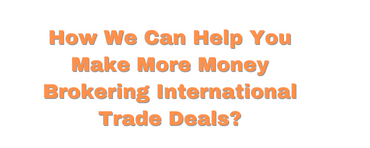Hassle-Free Customs Clearance for Your Import-Export Business
As an import-export business owner, one of the most daunting tasks you will face is dealing with customs clearance. It can be a time-consuming, complicated, and costly process, with strict regulations and paperwork to deal with. However, with the right knowledge and resources, customs clearance can be a hassle-free process that will save you time and money in the long run. In this article, we will provide you with valuable information on how to make customs clearance a smooth and hassle-free process for your import-export business.
Understanding Customs Clearance
Before we delve into the details of customs clearance, it is essential to understand what it entails. Customs clearance is the process of clearing goods through customs barriers for import or export. The process involves various procedures, including submitting necessary documents, paying duties and taxes, and complying with customs regulations.
Benefits of Hassle-Free Customs Clearance
Having a hassle-free customs clearance process can benefit your import-export business in several ways. These include:
-
Reduced Costs - Avoiding delays and penalties can save you money in the long run.
-
Faster Delivery - A streamlined process can ensure your goods arrive at their destination on time.
-
Improved Customer Satisfaction - Quick delivery and a hassle-free process can enhance your customer's satisfaction.
How to Achieve Hassle-Free Customs Clearance
To achieve a hassle-free customs clearance process, you should follow these steps:
1. Know the Regulations
Understanding customs regulations and requirements is crucial to ensuring smooth clearance of your goods. Familiarize yourself with the relevant customs laws and regulations of your country of import/export.
2. Proper Documentation
Ensure that you have all the necessary documentation, including bills of lading, commercial invoices, packing lists, and any other relevant documents. Accurate and complete documentation can prevent delays and penalties.
3. Use a Customs Broker
A customs broker can help you navigate the customs clearance process, saving you time and money. They are experts in customs regulations, procedures, and documentation and can ensure that your goods comply with all relevant customs laws.
4. Communicate with Your Freight Forwarder
Your freight forwarder can help you plan and coordinate the shipment of your goods. Communication is key to ensuring that all parties involved in the process are on the same page.
5. Consider a Customs Bond
A customs bond is a financial guarantee that ensures that the importer will pay all duties and taxes owed to customs. It can help expedite the clearance process and avoid unnecessary delays.
6. Keep Abreast of Changes
Customs regulations and procedures can change frequently. Stay up to date with any changes that may affect your import-export business to avoid any surprises.
Conclusion
Customs clearance can be a time-consuming and complicated process for import-export businesses. However, with the right knowledge, resources, and preparation, it can be a hassle-free experience that saves you time and money. By understanding customs regulations, having proper documentation, using a customs broker, communicating with your freight forwarder, considering a customs bond, and staying informed about changes, you can ensure smooth customs clearance for your import-export business.
FAQs
- What is customs clearance?
Customs clearance is the process of clearing goods through customs barriers for import or export. The process involves various procedures, including submitting necessary documents, paying duties and taxes, and complying with customs regulations.
- Why is customs clearance important?
Customs clearance is important for import-export businesses as it ensures that their goods comply with customs regulations, preventing delays, penalties, and loss of goods.
- What is a customs broker?
A customs broker is an expert in customs regulations, procedures, and documentation. They can help import-export businesses navigate the customs clearance process, ensuring that their goods comply with all relevant customs laws, and minimizing the risk of delays, penalties, and loss of goods.
- What documents are required for customs clearance?
The necessary documents for customs clearance may vary depending on the country of import/export and the nature of the goods. However, some common documents include bills of lading, commercial invoices, packing lists, and any other relevant documents.
- How can I stay informed about changes in customs regulations and procedures?
You can stay informed about changes in customs regulations and procedures by regularly checking government websites, subscribing to newsletters, attending seminars or webinars, and consulting with customs brokers or freight forwarders.
In conclusion, customs clearance is an essential process for import-export businesses, and it can be a hassle-free experience with the right preparation and resources. By understanding customs regulations, having proper documentation, using a customs broker, communicating with your freight forwarder, considering a customs bond, and staying informed about changes, you can ensure smooth customs clearance for your business. So, be proactive and take steps to ensure hassle-free customs clearance for your import-export business today.
Please reach out with your request using one of these ways:
- email: export@ramzisite.info
- Phone: +1 424 208 0297
- Telegram: https://t.me/+14242080297
- WhatsApp: https://wa.me/+14242080297
- FB Messenger: https://m.me/meramzi
- LinkedIn: https://www.linkedin.com/in/increasemynetprofits
To get more real life examples of successful Export transactions in a step by step manner, please read our Amazon Book (Mike Wilson & Ramzi Bouchrit), 7 Steps to Export Success: https://amazon.com/dp/B0B35HG9PC
Click Here and Visit Our Store





